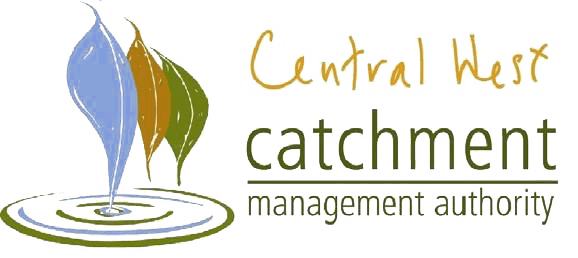
The Central West Catchment Management Authority (CWCMA) is one of 13 NSW Government organisations that work with regional communities in NSW to restore and improve natural resources. They are based in the heart of their regions and the General Manager reports to a Board made up of key stakeholders in Natural Resource Management (NRM).
Tim Ferraro, General Manager, felt that the growing demands from the various stakeholders – landholders, councils, NSW Government, Community Groups, Indigenous groups etc. were placing greater pressures on the staff. Unless they were able to increase their capacity, opportunities for NRM could be missed and stress levels would increase.
Tim commissioned the Hewsons Productivity Coaching Workshop (HPCW) to increase both organisational and personal levels of productivity. **
“My Executive Team and I had worked with Hewsons for the previous 12 months on creating an accountable culture in our organisation, so productivity seemed a natural next step for us to empower our people in dealing with the increasing demands for natural resource management in our region.”
Tim Ferraro, General Manager

Within six months Tim reported to his Board that “…over the period from May to December 2010, the following were achieved:
The workshop has certainly paid significant dividends for the CMA and will continue to do so in the months and years ahead.”
A management survey conducted by the CWCMA twelve months after the HPCW was first implemented concluded:
“Whereas previously I would regularly leave work at 6.30 or 7.00pm, I am now generally leaving work by 5.30pm and still getting my work done. I am also walking at lunchtime – where previously I often worked through lunch.”
Jane Chrystal, Implementation Workshop Manager“For as long as I remember, I’ve had to chase board papers from the executive team so that Tim (Ferraro) has the time to prepare his final submission to the board. Normally, they come in at the last minute and then both Tim and I have to work under pressure to get the papers ready. I am now receiving the board papers before the time they are due and so Tim and I have enough time to prepare our submission to the board. It’s a miracle!”
Nicole Widdenson, PA to General Manager

The Hewsons Productivity Coaching Workshop (HPCW) addresses the two elements that determine both individual and organisational productivity.
Most discussion surrounding productivity or effectiveness tends to centre around content and doesn’t deal with the context. Unless context is addressed, people’s habits and practices that determine productivity may not change and therefore their level of productivity doesn’t change.
For example, if the context is that there is “too much to do” then people may rush or try and take shortcuts. In this context, they will forget things, make more mistakes, lose their temper, procrastinate, avoid certain things, work will lose quality – and they will justify it all with “too much to do”.
Content includes the practices and tools people use to manage what they have to do. What to address in this area can be different in different organisations. For some it is about introducing task lists and scheduling, for others it might be about addressing email or effectively engaging others within the organisation.
Determining what will measure an increase in productivity.
One of the unique features of the HPCW is quantifying increases in productivity. An organisation can establish a Return on Investment (ROI) when making the investment in the HPCW.
The CWCMA decided to use the following measures:
2. Establishing a method of tracking those measures.
Forfeited hours are tracked by the CMA’s as part of their standard procedures and so the information and benchmark for this measure was readily available.
Hewsons designed a simple tracking spreadsheet for the remaining two measures that the staff would fill in at the end of every day.
“How can you put a price on staff feeling more in control, more fulfilled in their roles, able to respond to their customers more effectively? It leads to greater engagement with the organisation, greater self-esteem in their jobs. The Hewsons Workshop paid for itself many times over.”
Tim Ferraro, General Manager
3. Establishing a benchmark.
The tracking sheets were implemented 8 weeks prior to the first workshop to establish a benchmark for stress and completion of scheduled tasks. The results were then debriefed at the first workshop to ensure the results were consistent with the experience of the participants.
4. Tracking measures against benchmark.
The results from the spreadsheet were reported monthly, collated and reported back to the team so the team could track its progress and use the feedback to improve its performance. The measures were tracked for 6 months to establish the increase in each measure.
Each level of management must reflect productivity principles before introducing them to their reports otherwise there is no integrity in managing staff from these principles.
We start with the executive management and then progress to each level of management.
The first workshop introduces the participants to the fundamental principles of increasing productivity, both context and content. The contextual distinctions are the same for any organisation, but the sessions on content are designed specifically for the organisation. In the case of the CWCMA, the content involved development in managing tasks through task lists, diaries and email management.
“…it has led to much more effective delegation and to the realisation that I work within a team and that I can reasonably rely on others to assist with my work load.”
Tracey Macdonald, Coordinator Investment and Reporting
A key to the success of the HPCW is managers being champions and mentors with their staff for the implementation on both the context and content. Hewsons did not work individually with every staff member in the organisation, Hewsons worked with managers who then worked with their staff.
The second workshop is designed to introduce participants to principles of team and organisational productivity and to address the breakdowns experienced by the group since the first workshop.
Hewsons provides unique, transformational coaching for executives and leadership teams across Australia.
© 2024. Hewsons Executive Development Pty Ltd. All Rights Reserved. Marmoset is our Website Design Agency.